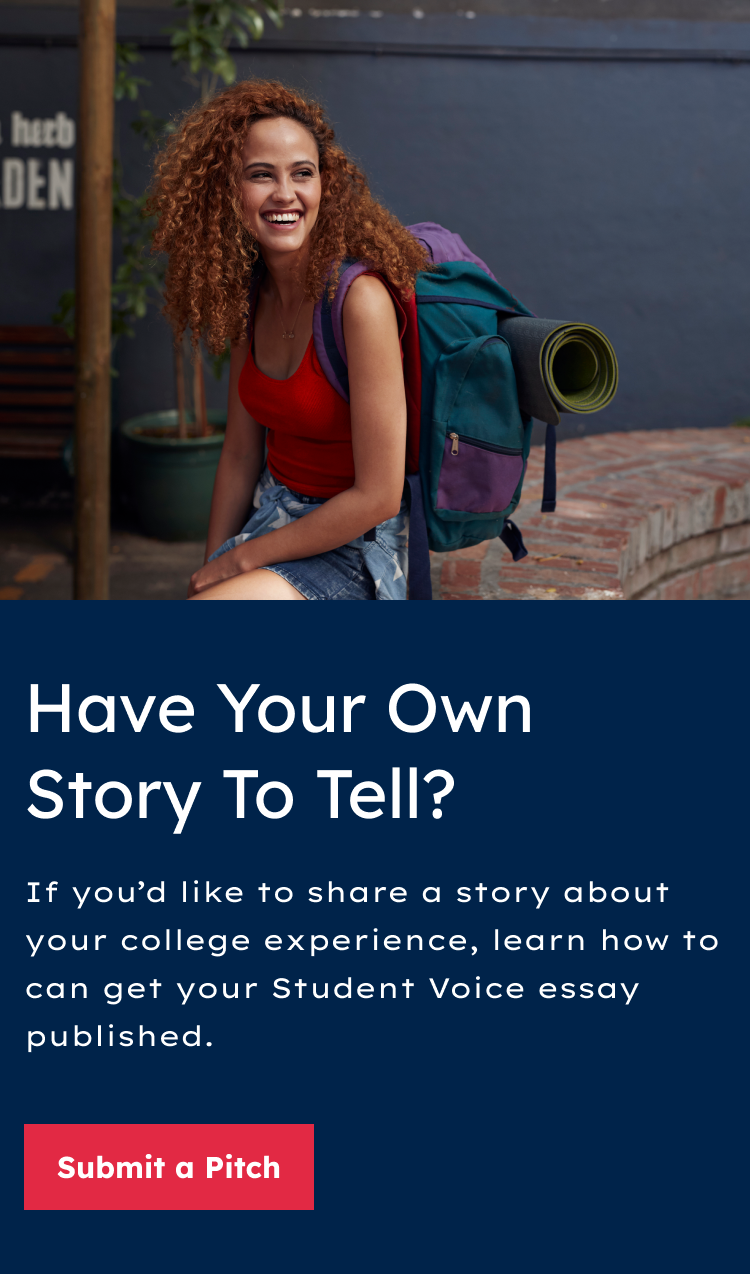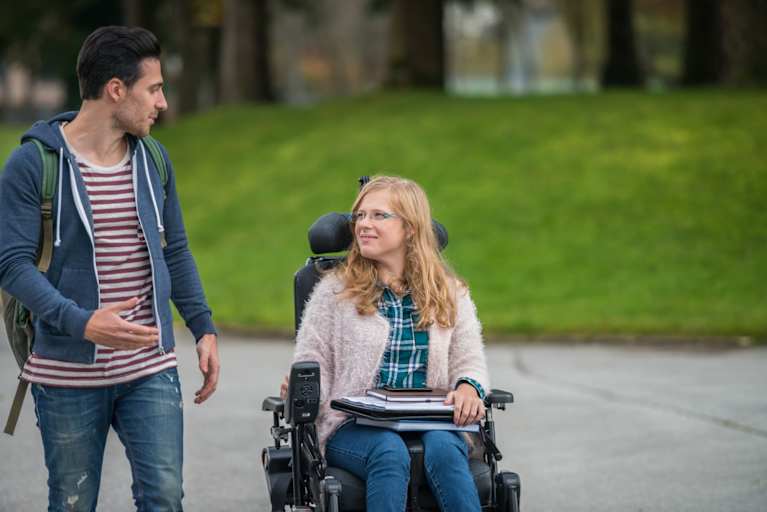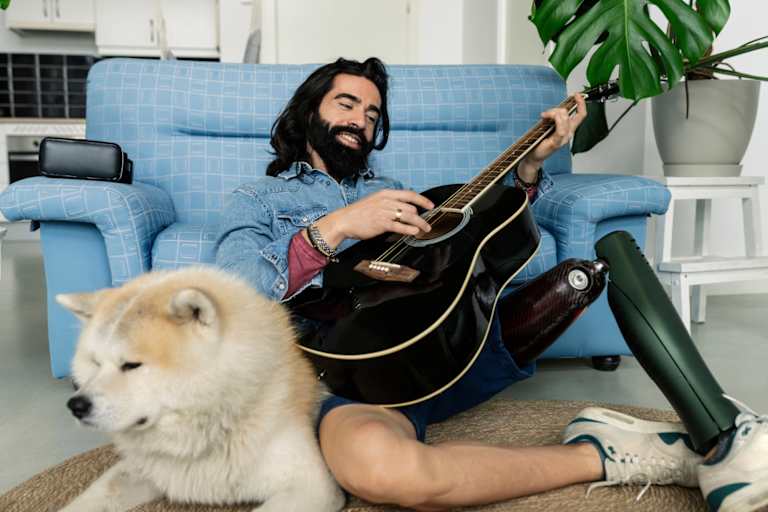How My University Supported Me as a Student With a Disability
As someone who has Asperger’s syndrome, I can attest to the difficulty of having a disability while in university. Disabilities hinder us in many ways that no one else can imagine. To succeed in university, I utilized resources to achieve my goal of graduating and doing excellent in my classes.
In elementary and middle school, I used to be a mediocre student. I remember getting C’s in regular classes and hating reading. It seemed like I was going nowhere — until I became determined. When I got determined, everything changed.
I earned really good grades in my high school classes and then I earned grades many college students can only dream of earning while in college.
At Florida International University (FIU), there were many resources to help students with disabilities succeed in their studies and graduate. Below are some of the resources I utilized at FIU to succeed academically, in addition to some advice on how you can do the same to succeed in your studies.
How I Built a Support System for Myself
As a disabled student, you need all of the help you can get to cross the finish line.
At FIU, I utilized the disability resource center to get accommodations that were necessary for me to succeed academically. Accommodations like being provided with noise-canceling headphones were useful in minimizing distractions. The biggest accommodation I received was getting extra time on tests.
As a person with Asperger’s Syndrome, I need more time to process information that I am learning. This prevents me from completing exams and quizzes in the normal timeframe most students are given to take a test or quiz.
My university’s disability resource center was very accommodating, and I was provided double time on tests and quizzes. This got me over the hurdle of not completing tests on time. It was because of this accommodation that I graduated as one of the top students in my class.
In the last two years of college when I got my study strategies nailed down, the worst semester GPA I had was 3.85 — yes, I had a few 4.0 semesters sprinkled into my college career.
“I utilized arguably the greatest academic advisor on the planet to accommodate me every time I had an issue.”
My advisor would stop what she was doing to help me with even the most menial things, such as finding my car keys when I forgot them, telling me I could succeed in a class when everyone else thought otherwise, advocating for my needs at the disability resource center, and helping me get involved in clubs.
She went above and beyond the call of duty to help me feel supported and welcomed. She cared about me as a person and every one of my needs, and she was genuinely interested in seeing me succeed. She made my experience go a lot smoother, and I felt confident in my classes as a result of her assistance.
Not only did she make me confident in my studies, but she also inspired me to be a better person and to treat people the way they’d want to be treated. She is truly a gem.
Learning to Advocate for My Needs
I got my first test back from a professor for their class. When I was reading the paper, I noticed deductions that weren’t supposed to be there. I tried to figure out why I was “wrong,” but couldn’t, so I went to my professor.
He gave me no explanation as to why my answers were “wrong” and referred me to the slides for the class. Still being firm about my answers being correct, I submitted an informal academic grievance — an appeal you submit for a grade after you’ve spoken to the professor to resolve the situation. At the hearing, I laid out the reasoning as to why my answer was correct.
Without any argument from my professor, I was awarded full credit for all answers I got correct on that exam and another exam the professor graded incorrectly. It took a lot of courage to do this. This would be extremely nerve-wracking, even if you didn’t have a disability, but it needed to be done.
Could my autism have played a role in this? Maybe. We aspies tend to be very firm in our beliefs — more so than many neurotypicals — and are willing to defend our viewpoints to get what needs to be done. Still, it was necessary considering what happened.
Ways You Can Self-Advocate in College
The bottom line is that no matter what your situation is in college, you have to speak up when it’s time to speak up. If someone doesn’t help you when you first ask, persist, persist, persist until you get the help you need. When there’s a will, there’s a way.
Make sure that the university has a competent disability resource center that can provide you with your accommodations. Some documentation that might be needed includes proof of your diagnosis or an individual education plan. This is arguably your most important resource when going to college.
It can be tough as a lone wolf in college, so make sure you ask about available support systems like support groups. Being around like-minded people is a great way to connect with individuals who sympathize with your experience and can make your college experience more bearable.
How I Paid for My College Tuition
As a student with a disability, you have many resources you can use to fund college that aren’t available to other students.
 Scholarships Exclusively for Disabled Students
Scholarships Exclusively for Disabled Students
Scholarships for students with disabilities exist. On multiple occasions, I used a scholarship program reserved specifically for students going to public institutions who had a disability. Every time I applied for this scholarship, I won money.
Chances are, you’ll have the same experience. You’d be surprised about how many scholarships go unapplied for — many scholarships remain unawarded every year because of the low number of applicants.
If you consistently apply for scholarships, you are bound to get money for your studies. Consistently applying and asking for more opportunities will most likely lead to something for you.
 Vocational Rehabilitation
Vocational Rehabilitation
This is the program I utilized to fund my college degree and books. I first saw a vocational rehabilitation counselor to express interest and determine my qualifications. We discussed the process and the counselor told me what documents I needed to bring to determine eligibility.
If you qualify, you and your counselor will meet to develop your individualized plan for employment (IPE). Based on your IPE, you and your counselor will determine the correct method for training. Vocational rehab can pay for tuition and books at a public institution or community college in your state.
There’s no guarantee that Vocational Rehab will pay for everything, but there’s always a chance. Why not explore it?

Embrace Your Strengths as a Student With a Disability
Here’s the deal — you are more capable than you think. You can do great things in your life, even if you have an obstacle in your way. I am living proof of this.
It’s all about embracing your strengths, interests, and what the market wants to create. Self-belief is the most powerful trait that you have. It is the engine that motivates you to do what it takes to be successful in what you want to do.
It’s that fire that wakes you up every day. If you find the fire and you let it drive you, your disability will not stop you from achieving your goals. You’ll not only meet your goals, you’ll exceed them to the highest extent possible.
Your disability is an obstacle, but your fire is what will put you over the top. Find your fire, let it drive you, and the rest will take care of itself. The world will see this in your eyes and your body language.
I’m living proof of this. If I can do it, so can you. Go after your dreams and make them happen. The world’s waiting for you, superstar.
Meet the Author

Evan Cruz is the founder of Join the Island, a blog helping young adults become extremely productive and reach their full potential to do the best job in school and their careers.
He has been featured on websites like Vox.com, UpJourney, and OnlineU.com, where he was cited as a human relations expert and a college expert, whilst being featured alongside doctors, lawyers, and CEOs.
He holds a bachelor of science degree in civil engineering from Florida International University, graduating magna cum laude. He currently works at the Florida Department of Transportation as a civil engineer.




